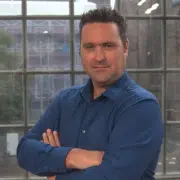HCSS proudly presents our Annual Report! The year 2023 was a year in which the challenges piled up, and power politics dominated the international discourse.
As we look back, we take stock of our achievements and formulate our plans for the next. The HCSS research portfolio is in a very good state. In 2023, we once again expanded our thematic scope while at the same time deepening our focus. Our portfolio currently covers a wider spectrum of the challenges that our societies face in today’s world, from great power politics and international security at the highest level down to the micro-fabrics of individual interactions that shape our everyday world from below.
This Annual Report offers you a comprehensive overview of the many issues we work on everyday: geopolitics, defence policies, coercion, emerging technologies, economic statecraft, climate change, cyber governance, societal security and public order.
As we approach the year 2024, you might look back and assess our balancing act towards a multipolar order was stressful, precarious, and sometimes disruptive. You might believe that next year surely will be more stable. We hate to bring you the bad news, but 2024 is likely to be another year of geopolitical and economic instability. It’s improbable we’ll see a softening of US policy towards China and there is a high probability that in 2024 pivotal elections, not only in the U.S., but also in India, U.K., Russia, South Africa and Taiwan converge with the potential for conflicts and will add to the odds of the global economy diverging from its current path.
The geopolitical and geo-economic implications of the reshaping world economic framework are still to be determined, but we’re already witnessing a reversal of global supply chains with an upward pressure on inflation as an outcome. The competition between unrestricted globalisation and national sovereignty will lead to insecurity and instability and will put pressure on the way we relate to each other, who we identify with and on our social contract. Meanwhile most scientists and politicians are aware that there is only a theoretical chance of limiting global warming to 1.5 Celsius above preindustrial levels.
Geoeconomic fragmentation will accelerate. Securing energy supplies, restraining inflation, ensuring supply chain resilience, guaranteeing security, rebalancing the distribution of wealth, and achieving sustainability: it seems inevitable that (geo)politics and cultural values will lead to supply chains becoming more and more local and regional.
At the same time, we are approaching Christmas and the closing of the year. A time to get together with friends, family and loved ones. This Annual Report contains food for thought, as we focus on some of the highlights of 2023 and on future developments in the world. Through this we hope to look ahead to a brighter future beyond the gloom of the daily headlines.
At HCSS we do not pretend to know the future, to solve all highly complex problems with our analyses, or to instantaneously improve the relations between nations or mankind in an age of great-power competition, technological breakthroughs and climate change. But we expect that our fact-based analyses contribute to an increased understanding of the future path of the world and to provide ideas of how governments, businesses, and individuals, can help to make this world a better and safer place to live in.
Our team had an absolutely phenomenal output publishing in-depth research reports, shorter policy briefs, academic articles, book chapters, and books, as this Annual Report will attest to. As we look forward, we expect another challenging year given the enormous geopolitical turbulence we do not expect to calm down anytime soon. We continue to work on our future by conducting objective, neutral, impartial, and fact-based research. We will be ready to offer our insights – now more than ever.
The HCSS team wishes you a very merry Christmas and a Happy New Year!
Authors: Alessandra Barrow and Patrick Willemsen.
With contributions by: Rob de Wijk, Paul Sinning, Tim Sweijs, Laura Birkman, Frank Bekkers, Paul van Hooft, Irina Patrahau, Maarten Vonk, Han ten Broeke, Abe de Ruijter and Joris Teer.







